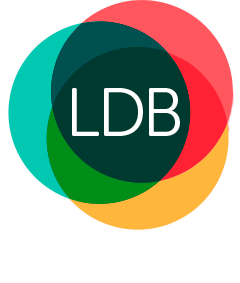Tips for managing business cash flow during COVID-19
April 16, 2020

Businesses have faced unprecedented disruption from the coronavirus (COVID-19) pandemic, however there are ways to protect cash flow against the economic headwinds to come.
In these challenging times, it’s about keeping your business alive, and in a position to come out the other side of this crisis with as minimal lasting effects as possible.
Now more than at any time, the old business adage stands true: cash is king.
While cash inflows and outflows are equally important, cash outflow strategies will be more effective at protecting your business since the uncertainty will also be affecting your clients.
Here are some tips for managing your business cash flow during these challenging times:
Maximise the cash in your bank
As cash in the bank is the most important asset for a business to ride out and survive the turbulent months ahead, a key aim should be to maximise the amount of available cash in your business bank account.
We strongly advise to prepare a revised cash flow forecast with some of the following strategies:
Review your accounts receivable listings
It is likely that some of your customers may become financially stressed over the coming months as businesses face their own cash flow problems. It’s therefore shrewd to identify potential problem payers in your list now and consider incentives to receive outstanding accounts immediately.
Such measures include offering early payment discounts or staggered payment arrangements. Remember, a discounted collection in the bank now will always outweigh a bad debt to write off later. Furthermore, initiate honest conversations with these customers – you want them to be customers following this crisis.
Request ATO payment deferrals
As the ongoing survival of your business is dependent on certain creditors continuing to be paid, such as suppliers, employees and superannuation, you will need to be selective in who you seek payment deferrals from.
The most obvious candidate in this respect is a payable almost every business will have on a semi regular basis – the Australian Taxation Office (ATO). The ATO has been willing to entertain substantial payment deferrals on GST, PAYG withholding and income tax if your business has been negatively impacted by COVID-19.
Negotiate rent relief with your landlord
Rent is likely to be one of your largest fixed expenses unless you own the property that you occupy. You may need to negotiate some relief from your landlord, be it a temporary rental reduction or a deferral of rental payments for a period. Landlords have been prohibited from evicting tenants during the next six months if the tenant is in financial distress due to the coronavirus (COVID-19).
There is also a new mandatory code of conduct for commercial tenancies, where businesses eligible for the JobKeeper payments and have an annual turnover of less than $50 million will be able to have their rent reduced in line with the reduction in turnover.
Request payment deferrals or additional funding from banks
The Australian Banking Association announced early on in this pandemic that its members, including the big four Australian banks, would offer up to six-month repayment pauses on mortgages for businesses affected by COVID-19. This would usually include actual business loans but may be extended to home mortgages for business owners who have had their usual cash flow disrupted.
Aside from deferring existing loans, you may consider requesting additional support from your bank such as a pre-approved line of credit or an increase to your overdraft. One of the federal government’s support schemes is to assist banks through 50 per cent loan guarantees to incentivise lending to businesses with turnover of less than $50 million.
These loans can be to a maximum of $250,000 per borrower for a term of up to three years. Importantly, these loans will also have a six-month initial repayment holiday and can be borrowed without being secured to any business asset.
Request payment deferrals from other lenders
Many businesses will have assets such as plant and equipment or motor vehicles which have financing arrangements attached to them. The financiers behind these arrangements will still be expecting their monthly payments, even if your revenue stops in the next few months.
Get on the front foot and ask for a deferral in payments. You may not need the deferral right now but in a few months, the additional funds in your business bank account could prove critical.
Seek government assistance
The government has announced several programs to support businesses during the coronavirus pandemic, including:
Look into JobKeeper payments
The government has legislated a wage subsidy program known as the JobKeeper allowance, which is available to:
- A business with a turnover of less than $1 billion per annum, where its turnover will need to be reduced by more than 30 per cent relative to a comparable period of a year ago.
- A business with a turnover of more than $1 billion per annum, where its turnover will need to be reduced by more than 50 per cent relative to a comparable period of a year ago.
- A business that is not subject to the major bank levy.
The subsidy is worth $1,500 per eligible employee per fortnight, including sole traders. If your business qualifies, then you should be able to claim the subsidy for all wages paid to employees after 30 March 2020, so long as they were registered as your employees as at 1 March 2020.
Take care with casual employees as they will need to have been employed on a regular basis for 12 months as at that date. There will be an element of commissioner’s discretion for businesses that are close to these thresholds but miss out due to extenuating circumstances or do not have a comparable period a year previous due to only being recently in operation.
Review ATO cash flow support scheme
This cash flow credit scheme will apply automatically to all businesses who report wages on their activity statements. The scheme works by accruing a credit to a business’ ATO running balance account based on how much PAYG withholding tax for employees is reported on certain activity statements from March 2020 through June 2020.
The maximum credit that will accrue during this period is $100,000, with this amount allocated to a business’ ATO account at staggered intervals between March and September 2020. The minimum credit that all employing businesses will receive through the scheme, no matter how much PAYG withholding is reported, will be $20,000.
Consider wage subsidies for apprentices and trainees
If your business had any apprentices or trainees on your books as of 1 March 2020, then you will be eligible to claim a subsidy for 50 per cent of their wages paid from 1 January 2020 through to 30 September 2020. The maximum amount allowed to be claimed per eligible apprentice or trainee per quarter will be $7,000 (maximum $21,000 in total).
Employers can register for the subsidy from 2 April 2020 with their respective Australian Apprenticeship Support Network provider.
Seek state government support for businesses
Most state governments have released support packages tailored to businesses of varied sizes. For example, Victoria has been waiving and refunding payroll tax paid by any business with taxable wages of up to $3 million.
The state revenue office intends to contact businesses directly, where they are eligible for this concession. However, if you have yet to receive any correspondence from them, please let your LDB adviser know.
Any Victorian businesses impacted by COVID-19 that employ staff, have taxable wages of less than $650,000, and turnover of more than $75,000, can also apply for a one-off $10,000 grant.
Talk to the business advisory experts at LDB
If you require any assistance with cash flow projection, management accounting and analysis to help reshape your business during this difficult period, then LDB’s business advisory team can help.
There are also many other ways that LDB can support your business during this crisis, with accounting, audit, wealth, superannuation and property teams on hand to assist where needed.
If you need support with your business strategy, please do not hesitate to call (03) 9875 2900 or send us a message via the contact form below.
